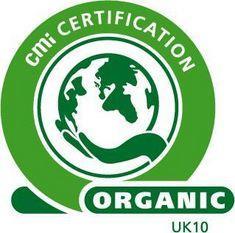
Almost half of the £6 million turnover of Cmi Certification is generated by its fresh produce division. The remainder is derived from within the UK, through farm schemes and certification processing.
It is clear to the company that due to the high level of interest in organics from retailers and consumers, and the rapid growth of the sector, there is a business opportunity for organic food certification.
In the UK during the late 1990s a relatively large number of farmers and growers began their conversion to organic production. Tim Green, agricultural director at Cmi certification, says: “Growth on the general farming production side is linked heavily to the availability of organic conversion grants and the apparent premiums being reaped in the marketplace by organic products. A major factor in persuading general farmers to go organic is the support of the government. Although there seems to be a general feeling that it would be desirable to achieve a target of 30 per cent of UK land area organically registered by 2010, the government seems reluctant to back this strongly with on-going aid grants similar to those available to farmers in other EU countries.”
Cmi has observed that the original nine UK organic inspection and certification bodies tended to involve themselves in the politics surrounding organics rather than concentrate on supplying a no-nonsense approach to organic certification. Green says: “The organic market was a difficult one at this time, due to the large number of UK growers converting to organic production. At this time Cmi found it difficult to develop new business in a sector where confidence in the future had taken a severe battering.”
Since the difficult period of 2001 Cmi has seen its numbers of organically certified producers grow slowly and by Christmas 2003, the number was more than 20. Cmi also certifies 10 organic processors and more than half of Cmi registered organic producers are from the produce sector. Green says: “Our organic certification service stands out from the competition because it is very price competitive, offering the competent organic farmer or processor a no-frills good service with advice if required being offered on a paid for basis.”
There has been renewed interest in Cmi’s organics offer from producers registered with other certification bodies. Green explains: “One of the main selling points of Cmi’s organic certification is the ability to offer inspection for other accredited schemes at the same visit.”
Organic certification in Green’s opinion is far more in-depth than other areas. He says: “Organic certification is much more complex than other certification activity because in many cases the standards themselves are more complex. This situation should improve following the publication of the Defra/UKROFS/ACOS Compendium of Organic Standards.”